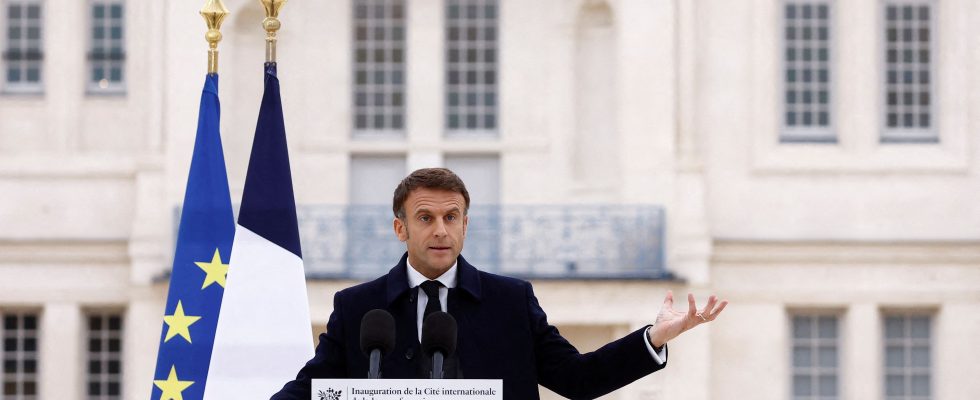The French language “forges the nation”, affirmed, Monday October 30, Emmanuel Macron, calling for “not to give in to the spirit of the times” by adding “points in the middle of the words”, while a bill to prohibit inclusive writing is on the Senate’s agenda.
“In this language, the masculine makes the neuter. We do not need to add dots in the middle of the words, or hyphens or things to make it readable,” declared the head of state at the occasion of the inauguration of the International City of the French Language in Villers-Cotterêts (Aisne). “The French language builds the unity of the nation” and it is “a language of freedom and universalism,” added the President of the Republic.
The Senate is examining this Monday evening a bill aimed at “protecting” French “from the abuses of so-called inclusive writing”, a text deemed “retrograde” by the left. The text from Les Républicains senator Pascale Gruny tackles this head-on: it plans to ban this practice “in all cases where the legislator (and possibly the regulatory authority) requires a document in French”.
“A practice contrary to inclusion”
A wide range is targeted: instructions for use, employment contracts, internal company regulations, but also legal acts, which would then be considered inadmissible or void if the measure were to be applied. The senators are calling for a ban on “grammatical words” constituting neologisms such as “iel”, a contraction of “he” and “she”, or “celeux”, a contraction of “celles” and “those”. “It is a practice which is precisely contrary to inclusion”, pleads to AFP the rapporteur (attached to LR) Cédric Vial. “The most impacted by its use are in fact people with disabilities and illiteracy, or those suffering from dyslexia.”
Adopted and even strengthened in committee on Wednesday, the text arouses indignation among part of the left. “It is an unconstitutional, retrograde and reactionary text, which is part of a long-standing conservative trend in the fight against the visibility of women,” is offended by socialist senator Yan Chantrel.
Described as a “mortal peril” by the French Academy, but conversely a tool for combating gender inequalities for its defenders, “so-called inclusive” writing designates, according to the author of the text, “editorial and typographical practices aiming to introduce grammatical words constituting neologisms or to replace the use of the masculine, when it is used in a generic sense, with a spelling highlighting the existence of a feminine form.
